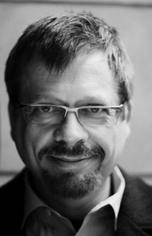Films
- Like Rats Leaving a Sinking Ship, 24'
Lyrically poignant yet contained, “Like Rats Leaving a Sinking Ship” is an intimate piece that combines personal subjectivity with the clinical objectivity of medical reports, challenging the very notions of these categories. The film is partly based on the author's psychiatric assessments diagnosing her with Gender Identity Disorder, in accordance with the International Classification of Diseases. Along with the discourse of the legally mandatory documents for transgendered people are her own personal writings that reflect upon the nature of memory – the present interpretation of the past - and question the possibility of any coherent biographic or filmic narrative. As evocative images inconspicuously blend with found family footage, a multilayered reality emerges in which the distinction between what is true or false becomes unimportant and obsolete. Although in line with topics such as general assumptions of gender, or “popular knowledge” of transgender people, “Like Rats Leaving a Sinking Ship” is, in fact, a deep reflection on the relation of “abnormal individuals” to authority apparatuses such as state, law and psychiatry.
read more

Authors:
- The Voice of God, 9'
If God would come down to Earth and try to earn a living in Bombay, most probably he would very soon become successful as a voice over artist, lending his voice to thousands of Hindi movies and even more documentaries and public service films in India. A melo-dramatic docu-drama with voice-over in stop-motion and long-time exposure.
read more

Authors:
- Conference, 8'
In this grotesque found-footage-film close-ups of 65 actors playing Adolf Hitler in movies created between 1940 and today are combined in shot/countershot-manner. The soundtrack is produced by the Austrian composer Bernhard Lang. No other historical figure of the 20th century was portrayed more often in movies and by so many different actors than Adolf Hitler. (Only Jesus Christ has more appearances in cinema´s history – but with a headstart of more than 50 years.) In this grotesque and uncanny identity parade Adolf Hitler is presented as an undead who is impersonated by an alarming number of revenants. “Conference” is part five of Pfaffenbichler’s notes on film-series, which deals with filmtheoretical and -historical subjects. The movie is also part of a series of works about Charles Chaplin, which includes a number of installations and films.
read more
Authors:
- Reality 2.0, 11'
- Ma, 14'
In the autumn of 2002 and spring 2003 Gerald Harringer shoots the experimental short film “Ma” with the German performance artist Boris Nieslony. It is about a hiking tour from the Czech-Austrian border to Hallstatt. The film interweaves scenes of the journey with impressively minimalist performances and dreams by Boris Nieslony. The film centres on a man, who sets off on a very lonely journey. His path takes him from a deserted village on the former death strip between the Czech Republic and Austria into the mountains. The last part of his hiking tour starts on the expanses of the high plateau on the Dachstein, his journey ends in Hallstatt. As in the Australian aborigines’ paths, which are mapped in the form of songs (“Songlines”) there are dreams showing the way to the nameless protagonist and leading him to impressively symbolic acts and rituals. This border area between dream and reality is also denoted by the film title Ma, being the Japanese word for “gap.”
read more

Authors:













